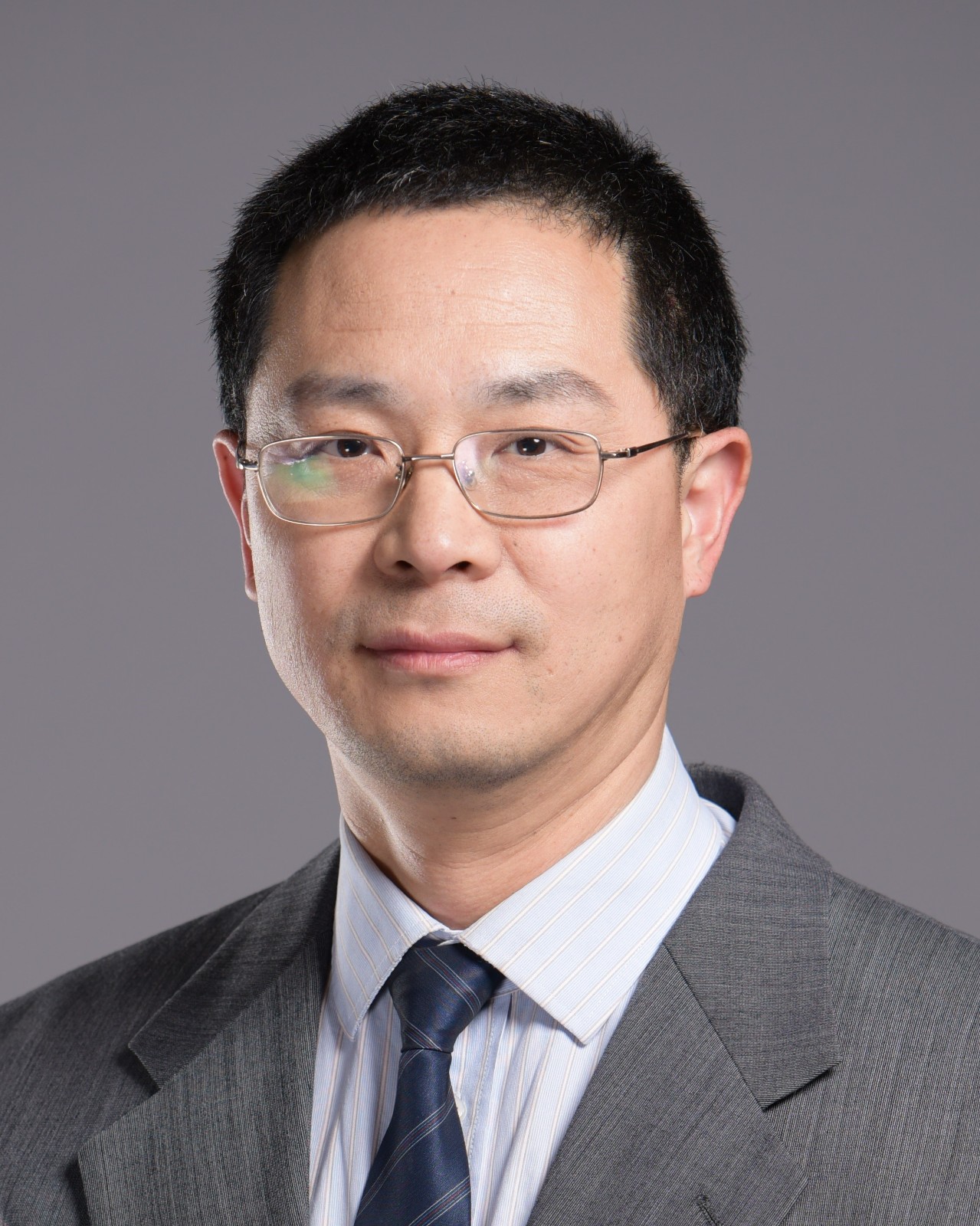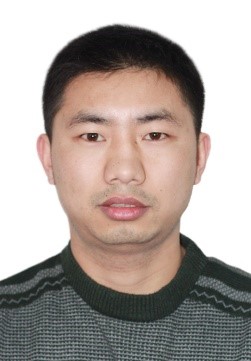
Speakers
Keynote speaker Ⅰ

Prof. Qianchuan Zhao
Tsinghua University, China
Dr. Zhao received the B.E. degree in automatic control in July 1992, the B.S. degree in applied mathematics in July 1992, and MS and Ph.D. degrees in control theory and its applications in July 1996, all from Tsinghua University, Beijing, China. He is currently a Professor and Director of the Center for Intelligent and Networked Systems (CFINS) Department of Automation, Tsinghua University. His current research focuses on the modeling, control and optimization of complex networked systems under uncertain environment. His team developed reinforcement learning (RL) algorithms that motived by energy saving problems and unmanned vehicle control problems.
Title: Offline RL and Its Applications: Perspectives, Attempts, and Prospects on Open Problems
Abstract:
Offline reinforcement learning (RL) algorithms hold tremendous promise for making it possible to turn large datasets into powerful decision making engines. Effective offline reinforcement learning methods would be able to extract policies with the maximum possible utility out of the available data, which effectively solves the sample efficiency issue in online reinforcement learning algorithms. Therefore, it is promising to allow the automation of a wide range of decision-making domains, from healthcare and recommended systems to robotics. However, the limitations of current algorithms make this difficult. In this talk, we provide an understanding of these challenges, particularly in the context of modern deep reinforcement learning methods, e.g., distribution shift and extrapolation error. Then, we describe some potential solutions that have been explored in our recent works to mitigate these challenges, along with recent applications, and a discussion of perspectives on open problems in the field.
KEYNOTE SPEAKER Ⅱ

Prof. Chi (Harold) Liu
Beijing Institute of Technology, China
Prof. Chi (Harold) Liu receives a Ph.D. degree in Electronic Engineering from Imperial College, UK in 2010, and a B.Eng. degree in Electronic and Information Engineering from Tsinghua University, China in 2006.
He is currently a Full Professor, Vice Dean at the School of Computer Science and Technology, and Director of Beijing Key Lab of Intelligent Information Technology, Beijing Institute of Technology, China. Before moving to academia, he worked for IBM Research - China as a staff researcher and project manager from 2010 to 2013, worked as a postdoctoral researcher at Deutsche Telekom Laboratories, Germany in 2010, and as a Research Staff Member at IBM T. J. Watson Research Center, USA in 2009. His current research interests include the big data analytics, mobile computing, and machine learning. He received the IBM First Plateau Invention Achievement Award in 2012, ACM SigKDD'21 Best Paper Runner-up Award, ACM MobiCom'21 Best Community Paper Runner-up Award, and IEEE DataCom'16 Best Paper Award. He has published more than 100 prestigious conference and journal papers and owned 37 EU/UK/US/Germany/Spain/China patents. He serves as the Associate Editor for IEEE TRANSACTIONS ON NETWORK SCIENCE AND ENGINEERING, Area Editor for KSII Trans. on Internet and Information Systems, the Symposium Chair for IEEE ICC 2020 on Next Generation Networking, and served as the (Lead) Guest Editor for IEEE Transactions on Emerging Topics in Computing and IEEE Sensors Journal. He was the book editor for 11 books published by Taylor & Francis Group, USA and China Machine Press, China. He also has served as the general chair of IEEE SECON'13 workshop on IoT Networking and Control, IEEE WCNC'12 workshop on IoT Enabling Technologies, and ACM UbiComp'11 Workshop on Networking and Object Memories for IoT. He was a consultant to Asian Development Bank, Bain & Company, and KPMG, USA, and the peer reviewer for Qatar National Research Foundation, National Science Foundation, China, Ministry of Education and Ministry of Science and Technology, China. He is a senior member of IEEE and a Fellow of IET, British Computer Society, and Royal Society of Arts.
Title: Energy-Efficient 3D Vehicular Crowdsourcing for Disaster Response by Distributed Deep Reinforcement Learning
Abstract:
Fast and efficient access to environmental and life data is key to the successful disaster response. Vehicular crowdsourcing (VC) by a group of unmanned vehicles (UVs) like drones and unmanned ground vehicles to collect these data from Point-of-Interests (PoIs) e.g., possible survivor spots and fire site, provides an efficient way to assist disaster rescue. In this paper, we explicitly consider to navigate a group of UVs in a 3-dimensional (3D) disaster work zone to maximize the amount of collected data, geographical fairness, energy efficiency, while minimizing data dropout due to limited transmission rate. We propose DRL-DisasterVC(3D), a distributed deep reinforcement learning framework, with a repetitive experience replay (RER) to improve learning efficiency, and a clipped target network to increase learning stability. We also use a 3D convolutional neural network (3D CNN) with multi-head-relational attention (MHRA) for spatial modeling, and add auxiliary pixel control (PC) for spatial exploration. We designed a novel disaster response simulator, called “DisasterSim”, and conduct extensive experiments to show that DRL-DisasterVC(3D) outperforms all five baselines in terms of energy efficiency when varying the numbers of UVs, PoIs and SNR threshold.
Keynote speaker Ⅲ

Prof. Chenglizhao Chen
China University of Petroleum (East China), China
Chenglizhao Chen received his Ph.D. degree from the State Key Laboratory of Virtual Reality and Systems in Beihang University (2017). Before that, he was also a joint Ph.D. candidate at Stony Brook University (2015-2016). After graduation, he joined the Qingdao University, as an Assistant Professor (2017-2019), an Associate Professor, tenure-track Professor, and the Vice Director of Computer Vision Laboratory (2019-2021). In Nov. 2021, he joined the College of Computer Science and Technology, China University of Petroleum (East China) as a Professor. He has published more than 40 papers in international journals and conferences, including reputable international journals such as TIP, TVCG, TMM, TCSVT, TOMM, TGRS, PR, INS, KBS, NC and top level international conferences like CVPR, AAAI, MM, IJCAI, and ISMAR.
Title: Weakly-supervised 360-degree Video Navigation
Abstract:
Different to the conventional 2D videos, the 360-degree videos enable the users to explore video content in the way with free camera angles, making its down-stream tasks to face a relatively large problem domain. As one of the most representative down-stream tasks, the primary objective of the 360-degree video navigation is to automatically formulate the camera-views frame-by-frame. By taking the full use of these camera-views, the users would be able to dynamically control the immersing interactions, suppressing the visual-physical incongruity, thus achieving better user experiences. Compared with the 2D videos, the currently available 360-degree videos are far less in number; even worse, the human annotated navigations are clearly more difficult to obtain. As a result, after entering the deep learning era, the fully-supervised training scheme, which has been widely-used in the 2D field, is clearly not suitable for the 360-degree video navigation. Following the key rationale of the weakly-supervised learning, this speech will introduce a series of research activities to conquer the common technical challenges of applying the deep learning technologies over the 360-degree video navigation task.
Keynote speaker Ⅳ

Prof. Shaohua Luo
Guizhou University, China
My research interests include the dynamics analysis of special electromechanical systems and network, analog circuit design and intelligent control, adaptive and optimal controls, application of artificial intelligence technology in electromechanical systems. In recent years, I have presided over several research projects supported by the National Natural Science Foundation of China and the Provincial Natural Science Foundation of China, and participated in several research works such as the National 863 Program and the National Natural Science Foundation of China, e.g., key projects, general projects and international (regional) cooperation and exchange projects. Some theoretical and application achievements have been made in key science and technology such as intelligent manufacturing, autonomous intelligent system, high-performance electromechanical drive system and equipment. I have published 50 research papers in authoritative academic journals at home and abroad, acquired 22 authorized invention patents including four British invention patents and one America invention patents, did the transformation of two invention patents, and served as the director of innovation research group of provincial universities and key projects of ESI potential discipline promotion plan of Guizhou University. Meanwhile I have won the second prize of Excellence Fund, the outstanding young scientific and technological talents, the academic leader of the discipline of Guizhou University, the distinguished expert of provincial enterprise innovation post and the title of excellent postdoctoral. Relevant research results have been positively cited by well-known experts in this field, including Academician Bin Ning of the Beijing Jiaotong University, Prof. Zhongliang Jing (Changjiang Scholar) of the Shanghai Jiaotong University and Prof. Donald C. Wunsch (IEEE Fellow) of Missouri University of Science and Technology in USA. In addition, I have had more than 4 years of engineering experiences in state-owned enterprises and foreign-invested enterprises.
Title: Adaptive pre-given performance control of special electromechanical systems and network based on the fuzzy neural network
Abstract:
Focused on the national strategic needs and aimed at mechanical engineering disciplines and related technology development frontier, I dedicated my life to the intelligence control and pre-given performance control of special electromechanical systems. To achieve the goals like compensation and correction of the motion and attitude for the special electromechanical systems according to the parameters and working environments, these tools and technologies such as the neural network, fuzzy system, optimal control strategy, game-type control, intelligence control and filter are fused together here. Then, an acceleration adaptive fuzzy optimal control technology of mutual coupling fractional-order electromechanical transducer, an adaptive backstepping optimal control technology of fractional-order electromechanical transducer system and an adaptive neural network optimal timing synchronization control technology of coupled fractional-order self-sustaining electromechanical seismograph system are proposed. These methods reduced the influence of nonlinear factors and external interference on the systems, thus improved the reliability and stability of the electromechanical systems and network.
Keynote speaker Ⅴ

Prof. Philippe Fournier-Viger
Shenzhen University, China
Philippe Fournier-Viger (Ph.D) is a Canadian researcher, distinguished professor at Shenzhen University (China). Five years after completing his Ph.D., he came to China in 2015 and became full professor after receiving a talent title from the National Science Foundation of China. He has published more than 375 research papers related to data mining algorithms for complex data (sequences, graphs), intelligent systems and applications, which have received more than 11,000 citations. He is the founder of the popular SPMF data mining library, offering more than 250 algorithms to find patterns in data, cited in more than 1,000 research papers. He is former associate edito-in-chief of the Applied Intelligence journal and has been keynote speaker for over 15 international conferences and co-edited four books for Springer. He is a co-founder of the UDML, PMDB and MLiSE series of workshops held at the ICDM, PKDD, DASFAA and KDD conferences.
Title: Advances and challenges for the automatic discovery of interesting patterns in data
Abstract:
Intelligent systems and tools can play an important role in various domains such as for factory automation, e-business, and manufacturing. To build intelligent systems and tools, high-quality data is generally required. Moreover, these systems need to process complex data and can yield large amounts of data such usage logs, images, videos, and data collected from industrial sensors. Managing the data to gain insights and improve these systems is thus a key challenge. It is also desirable to be able to extract information or models from data that are easily understandable by humans. Based on these objectives, this talk will discuss the use of data mining algorithms for discovering interesting and useful patterns in data generated from intelligent systems and other applications.
The talk will first briefly review early study on designing algorithms for identifying frequent patterns. Then, an overview of recent challenges and advances will be presented to identify other types of interesting patterns in more complex data. Topics that will be discussed include high utility patterns, locally interesting patterns, and periodic patterns. Lastly, the SPMF open-source software will be mentioned and opportunities related to the combination of pattern mining algorithms with traditional artificial intelligence techniques for intelligent systems will be discussed.